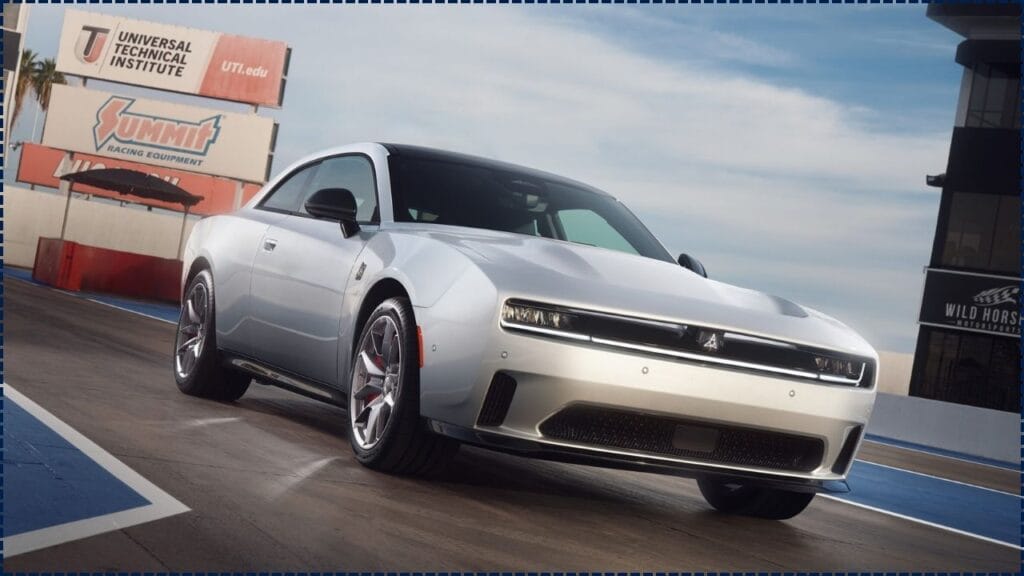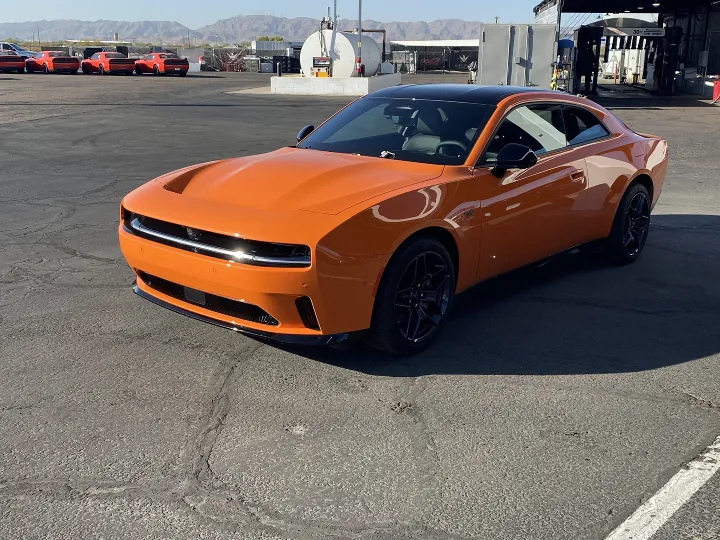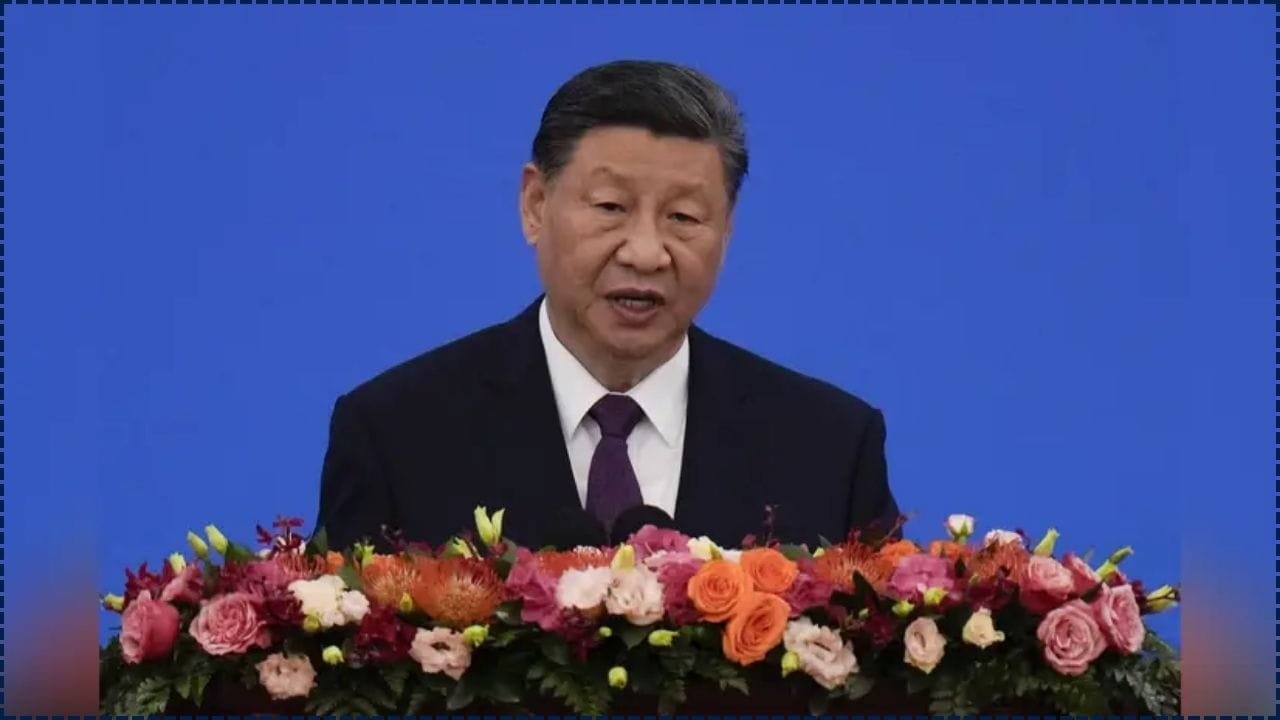The 2024-2025 Dodge Charger Daytona EV, Dodge’s pioneering all-electric muscle car, embodies innovation and performance, yet a recall has been issued to address a vital safety concern with compassion for community well-being. While its quiet operation offers drivers a serene experience, it poses unintended risks for pedestrians and cyclists who depend on audible cues to stay safe.

This issue has led to the discovery that the vehicle does not fully comply with federal regulations requiring electric vehicles to emit sound at low speeds. Dodge is taking heartfelt action to ensure the Charger Daytona EV prioritizes the safety of all road users, fostering a shared commitment to protecting lives and enhancing accessibility for everyone.
This recall affects 8,390 vehicles and has been officially classified as NHTSA Campaign Number 25V-389. Dodge is working swiftly to address this issue by offering a free software update to affected vehicles. Here’s everything you need to know about the recall, the implications of the quiet car, and the next steps for affected owners.
Dodge Charger Daytona EV Is Too Quiet
| Feature | Details |
|---|---|
| Recall Date | July 5, 2025 |
| Affected Models | 2024–2025 Dodge Charger Daytona EV |
| Issue | Insufficient external pedestrian warning sound |
| Cause | Software error preventing external amplifier activation |
| Repair Required | Free software update to fix external sound system |
| Time to Repair | Approximately 2.5 hours at authorized dealerships |
| Dealer Actions | Offering alternate transportation options |
| Owner Notification | Starting July 10, 2025 |
| Official Recall Information | NHTSA Recall Notice |
The Dodge Charger Daytona EV recall underscores a heartfelt commitment to ensuring safety during the exciting transition to electric vehicles, prioritizing the well-being of all who share our roads. While the Charger Daytona EV heralds a new era of high-performance muscle cars with its innovative technology, this recall highlights the importance of protecting pedestrians and cyclists who rely on audible cues for safety. Dodge’s prompt and caring response, offering a free software update, reflects a deep dedication to safeguarding communities while embracing sustainable innovation, fostering trust and care for every journey.
As electric vehicles continue to grow in popularity, manufacturers must prioritize safety alongside performance. The Charger Daytona EV’s recall is a clear indication that future EV designs will need to strike the right balance between innovation, sound, and safety. By addressing this concern, Dodge has taken a crucial step in ensuring that the electric future of performance cars is both thrilling and safe.

Why Is This Recall So Important?
What Is the Problem with the Dodge Charger Daytona EV?
The Dodge Charger Daytona EV is designed to be futuristic and powerful, but the issue with this car is its lack of noise. Electric vehicles (EVs) are inherently quieter than traditional combustion-engine vehicles, which is usually an advantage for drivers. However, this silence can also present a serious safety risk. Pedestrians and cyclists rely on sound cues to detect oncoming vehicles, especially at low speeds or in busy urban environments.
Federal regulations require that electric vehicles emit a pedestrian warning sound at low speeds to ensure they are audible to others on the road. Unfortunately, the Charger Daytona EV has failed to meet this requirement due to a software glitch in the vehicle’s external amplifier. The glitch prevents the system from functioning at low speeds, which in turn makes the car dangerously quiet.
The Importance of Pedestrian Warning Sound
Pedestrian safety is a growing concern in the electric vehicle era, as EVs tend to be quieter than their gasoline counterparts. In particular, blind or visually impaired pedestrians rely on sound to gauge their proximity to vehicles. Additionally, in busy environments, cyclists and motorcyclists may not hear an approaching EV unless it is equipped with an external sound system.
In this case, the FMVSS No. 141 regulation mandates that vehicles like the Charger Daytona EV produce a minimum external sound to alert pedestrians, especially at low speeds. Failure to comply with this rule could result in increased risk of accidents and injuries.
What Should Dodge Charger Daytona EV Owners Do?
- Check for Affected Vehicles: Owners of the 2024–2025 Dodge Charger Daytona EV need to check whether their vehicle is part of the recall. To do this, they should visit the NHTSA Recall Lookup Tool and input their Vehicle Identification Number (VIN). Owners can also contact their local Dodge dealership for confirmation.
- Schedule a Free Repair: Once confirmed, owners should contact an authorized Dodge dealership to schedule a free software update. This update will restore the external amplifier’s functionality, ensuring that the required pedestrian warning sound is activated at low speeds.
- The update takes around 2.5 hours, and owners can take advantage of loaner vehicles or shuttle services while the repair is being performed.
- Wait for Further Instructions: Dodge will send formal recall notices to affected owners by July 10, 2025. These notices will include specific details on how to schedule the repair. While Dodge is proactively addressing the issue, owners are encouraged to act quickly to ensure compliance and safety.
The Future of Electric Muscle Cars
Electric Muscle Cars: A New Era of Performance
The Dodge Charger Daytona EV is an exciting glimpse into the future of muscle cars. While muscle cars have long been associated with gas-guzzling engines, the Charger Daytona EV blends performance with sustainability. It offers the same aggressive styling, powerful acceleration, and muscle-car aura but without the emissions. This shift to electric technology represents a major evolution in the performance car industry.
Despite the current recall, the Charger Daytona EV is a symbol of the muscle car’s future, where innovation and tradition come together. With growing interest in electric performance vehicles, manufacturers like Dodge are leading the charge in making muscle cars not just sustainable but compliant with safety standards.
How Software Updates Are Changing the Automotive Industry
The ability to resolve issues like the Charger Daytona EV’s pedestrian sound problem with a software update is revolutionizing the way automakers approach recalls. With over-the-air (OTA) updates, manufacturers can now fix certain problems remotely, reducing the need for physical repairs. This makes the recall process faster, more efficient, and less disruptive for owners.
The software update for the Charger Daytona EV is an example of how software is becoming a key component in vehicle maintenance. As more cars become connected and smart, the ability to update software remotely will likely become standard practice, ensuring that problems can be addressed without requiring major repairs.
Related Links
Toyota Hybrids Last Longer Than Any Other Automobile Brand: Check Why Their Reliability Beats All!
A Defect Forces Volvo To Recall 450,000 Vehicles: XC40, XC60 And Others Pulled For Camera Failure!
Dodge’s Commitment to Innovation and Safety
Dodge has long been celebrated for crafting high-performance vehicles that inspire drivers, and the introduction of the Charger Daytona EV represents a bold and hopeful step toward a sustainable future with electric vehicles. Yet, the recent recall gently reminds us of the shared responsibility to prioritize safety, ensuring that even the most groundbreaking innovations protect and uplift communities. By addressing this issue with care, Dodge reaffirms its commitment to fostering trust and safety for all, harmonizing cutting-edge technology with the well-being of every individual on the road.
Dodge’s response to the issue has been swift and effective. The company has acted quickly to issue a recall and is offering free repairs to owners. By doing so, Dodge is reinforcing its commitment to both innovation and safety, ensuring that new technologies meet the necessary standards.
FAQs
1. What is the reason for the recall of the Dodge Charger Daytona EV?
The recall is due to a software glitch that prevents the external amplifier from emitting the required pedestrian warning sounds at low speeds.
2. How do I know if my vehicle is affected by the recall?
Owners can check if their Dodge Charger Daytona EV is affected by entering their VIN into the NHTSA Recall Lookup Tool or by contacting their Dodge dealership.
3. How long will the repair take?
The repair involves a software update and is expected to take about 2.5 hours at an authorized dealership.
4. Is there any cost for the repair?
No, the software update is free of charge for all affected owners.
5. What if I’ve already driven my vehicle with the software issue?
If you’ve already driven your vehicle without the pedestrian warning sound, it’s important to schedule the software update as soon as possible.








